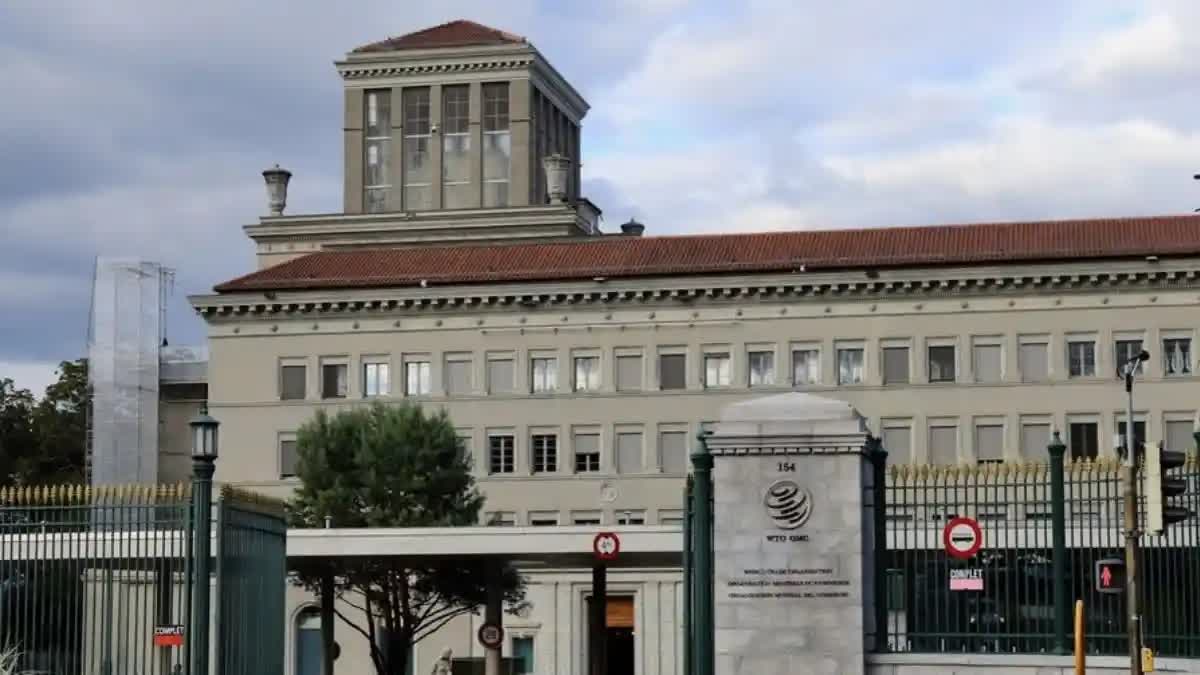Hyderabad: The WTO ministerial meeting 13 in Abu Dhabi was completed recently (March 3, 2024). As any body with minimum knowledge about this international trade organisation can guess, nothing substantial outcome has resulted in the meeting.
The reason for this stalemate lies in the very design of this organisation.
Every member tries to outsmart the system. While the WTO is created to resolve trade related disputes by consensus and discussion, a few powerful member countries such as USA have formed Free Trade Agreements (FTAs) with their chosen member countries, thus undermining (circumventing)the very foundational principles of the WTO. The first FTA was floated in 1993 by USA under the caption North American Free Trade Agreement (NAFTA) under which the United States could export its highly subsidised agricultural commodities to Mexico and similar countries. It is nothing but dumping of American (USA) agricultural products in the region at highly subsidised prices. After seeing the smart moves of USA, other countries have built similar FTAs and the number of FTAs have increased significantly since the beginning of WTO. FTAs allow the countries to incentivise the participant countries to break the rules of fair competition. The FTAs enable the big fish eat small fish and that too in a legitimate way.
Thus, the WTO has become like UN. In the 28 years since the founding of the WTO, the world has gone back to the Pre-world war two days.
During the MC13 (February 26 to March 2, 2024), agriculture was the top priority of both India as well as Europe, where farmers are up in arms over issues like subsidies and market access. The most vital part of agriculture for Indian and its partners (almost 80 countries) was negotiations related to public stockholding (PSH) for food security. PSH is of key importance for two reasons – first, it involves procurement of food grains from farmers assuring them MSP for their produce if market prices fall; and second, grains are procured to provide free dry ration to over 810 million poor under the Prime Minister Garib Kalyan Ann Yojana (PMGKAY), besides fulfilling obligation to distribute highly subsidised food items under the National Food Security Act (NFSA).
WTO rules limit the subsidy that can be provided to such farm products being procured. The G-33 -- a coalition of developing countries including India and African groups, over 80 countries in total — is demanding a permanent solution to PSH for food security purpose while improving the ministerial decision adopted at the ninth ministerial conference (MC9) in Bali in December 2013, where members agreed to negotiate a permanent solution on this issue by the MC11 and in the interim, they agreed to exercise due restraint (also called the peace clause) in raising disputes in respect to PSH instituted before December 7, 2013, even if countries exceeded their permissible limits.
On agriculture, India wanted a permanent solution to its public stockholding (PSH) programme which will allow it to continue to procure food grains at minimum support price and store it for its public distribution programme. India’s stand was to address its issues first because they were decided in 2013. Brazil and other members of the Cairns Group of agriculture exporters wanted the meeting to take up all issues around agriculture as a package. Agriculture exporters and the US wanted PSH, which has a backing of 80 countries, to be curbed so that they can access markets in these countries.
Because there is a permanent peace clause on the PSH, which means it cannot be challenged, India is sitting in a comfortable position and does not have to make any adjustments in the local agriculture policy. (It may be mentioned here that some farmers’ associations in India have demanded that it should quit WTO to safeguard the farmers interests and food security for the vast majority of the Indian population. These farmer associations are really not aware how the WTO system works and the implications of withdrawal from the WTO. If India withdraws from the WTO system, it can not export its manufactured products at competitive prices and also cannot export its Human Resource— labour— to other countries. That would result in economic disaster of colossal proportions). ((It would be foolish to do so)).
As part of a permanent solution, India has asked for measures like amendments in the formula to calculate the food subsidy cap and update the external reference prices used to calculate market price support in public stockholding, which are currently based on 1986-88 prices. The dated reference year makes the subsidy bill much higher than it actually is.
At Geneva the attempt will again be made to bring the Investment Facilitation for Development agreement, that got the backing of more than 120 countries in Abu Dhabi, formally in the WTO. India and South Africa had successfully thwarted this attempt at MC-13 on the grounds that it has nothing to do with trade.
Between now and MC-14 (Cameroon 2026) India has to bring in other non-trade issues like gender, MSMEs on the WTO agenda and negotiate with the world trade body on its (India’s) strength in terms of competitiveness and economic power. India is quite capable of safeguarding its interests in the next rounds of ministerial conferences.



